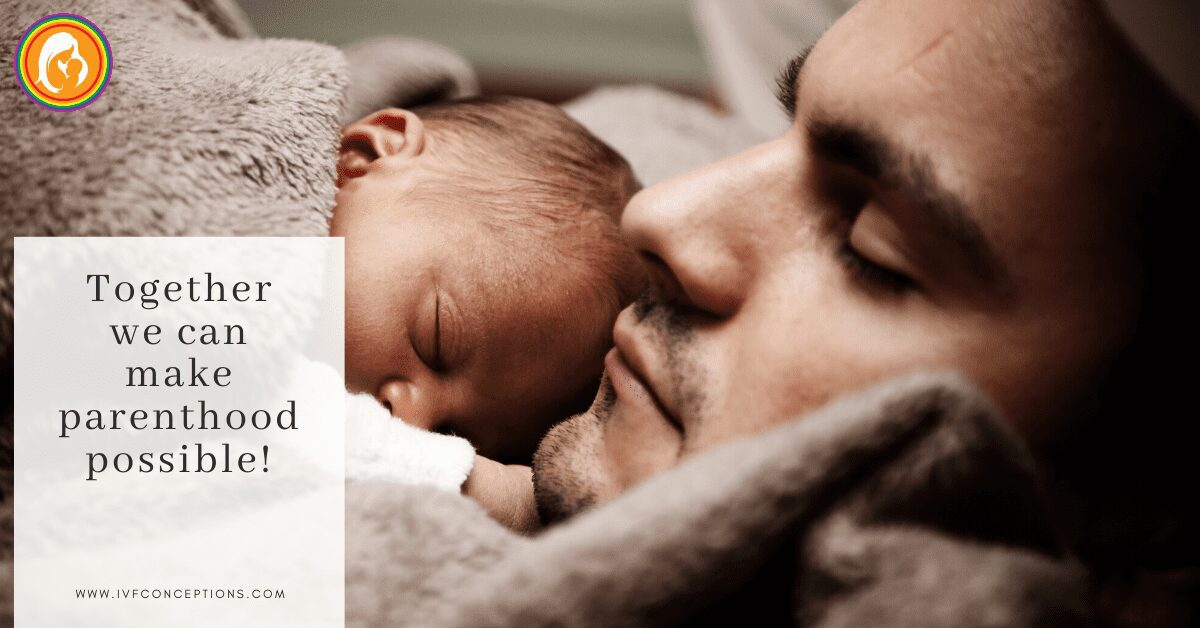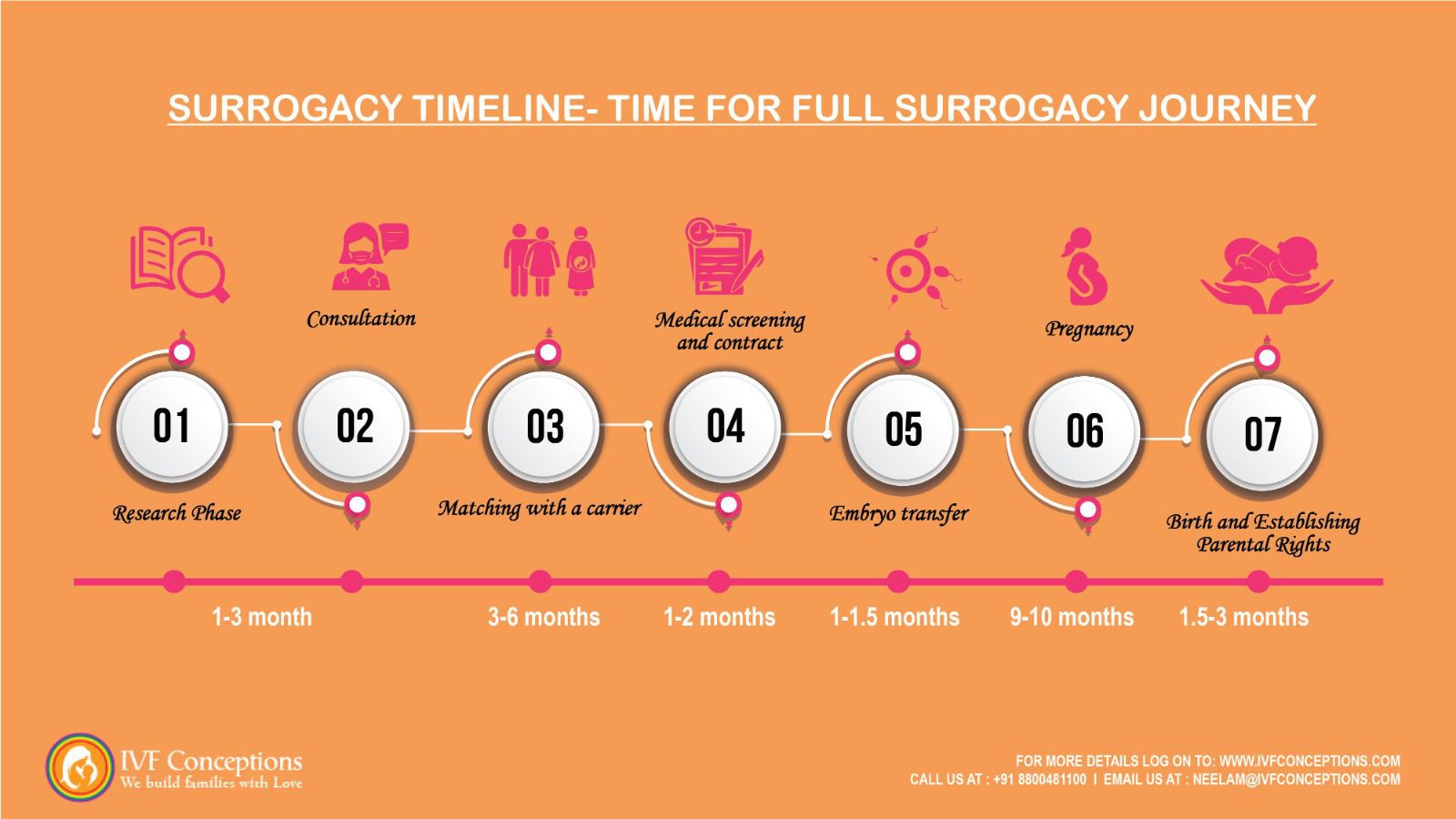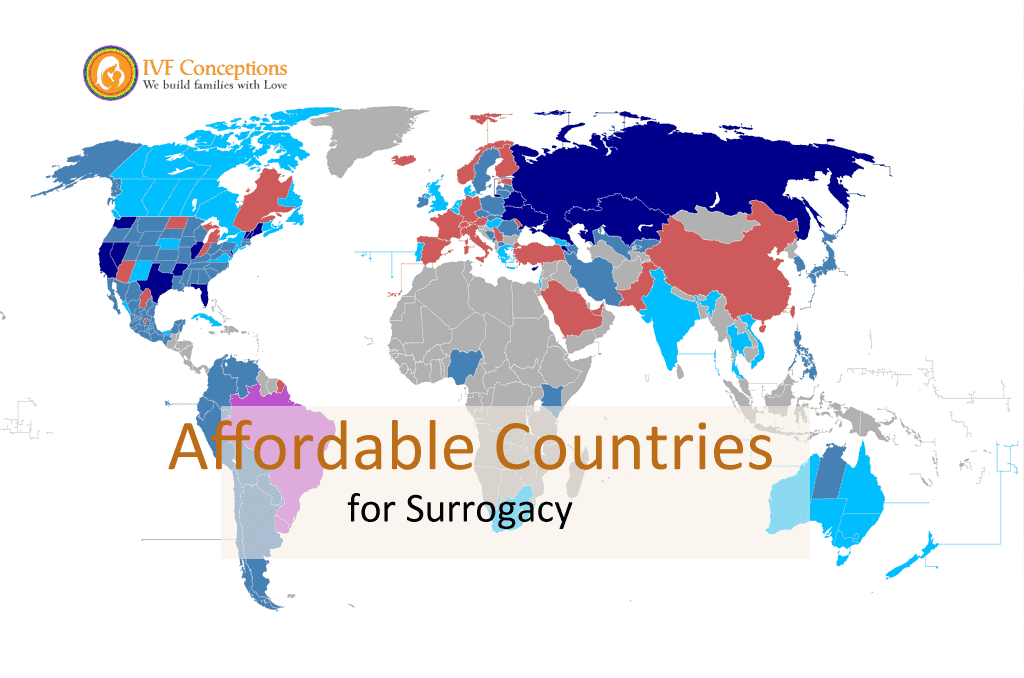How Does Gay Surrogacy Work- Your Comprehensive Guide to Parenthood

Are you and your partner thinking about surrogacy to start a family? With society getting more accepting, many same-sex couples and LGBTQ individuals consider this option seriously for having kids. But what are the steps in gay surrogacy, and what must you consider, such as legal issues, medical needs, and emotions?
We aim to deeply explore gay surrogacy, diving into the steps, issues, and joys of this route to parenthood. We’ll cover how to find a good surrogate and deal with laws, plus the tech used for assisted reproduction. We want to give you all the info you need to decide if surrogacy is best for your family.
If you’re starting or are well on your way in looking into surrogacy, this guide is here to help. It will give you the facts and tools to make the surrogacy process smoother and successful. Ready to learn all about gay surrogacy?
Key Takeaways:
- Surrogacy is a choice for same-sex couples and LGBTQ individuals to have kids, alongside adoption.
- The gay surrogacy journey includes picking the right surrogate, egg donor, and handling legal and ethical matters.
- It’s a complex, costly journey, but with a more open society, it’s getting easier to access.
- Knowing the good and bad sides of surrogacy for gay parents is key in choosing this parenthood path.
- This guide offers vital info and resources for making a smart choice about gay surrogacy.
Get in touch for FREE SURROGACY CONSULTING:
Mobile: +91-8800481100 ( WhatsApp, Line, Viber)
Email: neelam@ivfconceptions.com
Understanding Gay Surrogacy
More LGBTQ+ people and same-sex couples are choosing surrogacy to have kids. This method offers a path to parenthood. It covers unique laws and steps for gay intended parents who want to expand their families.
Overview of Surrogacy for Gay People
Surrogacy allows gay couples and LGBTQ+ individuals to have kids related to them. It can be done through traditional or gestational surrogacy. The surrogacy process enables gay couples to have children and build LGBTQ+ families through surrogacy. This method is a popular choice for gay parenting via surrogacy and LGBTQ+ family planning.

Legal Considerations for Same-Sex Couples
The laws on surrogacy for same-sex couples can differ a lot. These variances happen between states and countries. Gay couples must understand these laws. They need to go through certain legal steps like pre-birth orders and second-parent adoptions. These actions make sure both partners are seen as the child’s parents. It secures their rights and family’s integrity.
Learning about assisted reproductive technology for gay men and surrogacy options for gay parents is crucial. So is understanding legal considerations for gay surrogacy. This information helps same-sex couples make good choices for their surrogacy journey for gay dads. It guides them in choosing the best LGBTQ+ family-building options.
Related surrogacy Costs guides:
What is the average surrogacy cost?
How much does surrogacy cost in Ukraine?
How much does surrogacy cost in Georgia?
How much does surrogacy cost in India?
What is the Surrogacy Cost in Colombia?
What is Surrogacy cost in Mexico?
What is surrogacy cost with family members?
Choosing a Surrogate for Gay Surrogacy
Starting the surrogacy process is key for gay couples. They must find a gestational carrier that meets their values and can make the journey positive. This way, surrogacy for same-sex couples becomes an enriching experience.
Finding the Right Gestational Carrier
For surrogacy options for gay parents, the surrogate’s health and mindset are crucial. Working with surrogacy agencies for gay couples ensures they find someone dedicated to helping LGBTIQ families grow.

It’s vital to look at the surrogate’s age, health, and if she’s done this before. In gestational surrogacy for gay men, the surrogate’s comfort with not being genetically linked to the child is a big point.
Establishing a Relationship with the Surrogate
Creating a strong bond with the surrogate is vital for gay couples. Open talks, respect, and understanding are crucial from the start. This sets a good foundation for the surrogacy process for same-sex couples to go smoothly.
Regular talks and setting clear rules are also important. Everyone’s feelings and choices should be respected. With everyone working together, gay parenting through surrogacy becomes a positive venture.
How Does Gay Surrogacy Work?
The surrogacy process can be life-changing for gay couples wanting to be parents. It’s essential to know the special steps that same-sex couples go through.
The surrogacy process takes 18 months to 24 months depending upon the individual circumstances
Outlines the gay surrogacy process timeline for intended parents:
| Stage | Description of Stage | Duration |
| Research Phase | Explore family-building options and decide on surrogacy. | Personal timeframe |
| Consultation and Application | Choose a surrogacy agency, sign an agreement, and start embryo creation (if needed). | 1-3 Months |
| Matching | The agency finds and presents potential gestational carriers. Meet and decide on a match. | 3-6 Months |
| Medical Screening and Contracts | Carrier undergoes medical and psychological screening. Sign surrogacy contract. | 1-2 Months |
| Embryo Transfer | Prepare for embryo transfer. Success may take multiple attempts. | 1-1.5 Months |
| Pregnancy | Gestational carrier’s pregnancy, approximately 40 weeks. | 9-10 Months |
| Birth and Postpartum | Baby’s birth, established parental rights, and the postpartum period. | 1.5-3 Months |
Please keep in mind that the durations mentioned in the table are approximate and can vary depending on individual circumstances and other factors. Always consult with a reputable surrogacy agency or professional to get personalized guidance throughout the surrogacy journey.

The Surrogacy Process for Gay Intended Parents
For gay couples, surrogacy starts with finding a woman to carry the baby. They then choose a sperm donor.
This donor can be someone they already know or a stranger from a sperm bank. The parents and clinic work together to pick a donor and do the fertilization.
Choosing a Sperm Donor
Choosing the donor is a big part of the process. It can be a friend or someone the clinic finds.
The donor’s health, looks, and even personality are important. Legal and emotional issues are thought of too. But the clinic helps them through all of these decisions.
In Vitro Fertilization (IVF) and Embryo Transfer
Later on, the embryo is put into the surrogate’s womb. This is called the IVF and embryo transfer. The parents support the surrogate and make sure everything goes well.
After the process is complete, they wait to welcome their baby.
| Key Steps in the Gay Surrogacy Process | Description |
| Selection of a Gestational Surrogate | The intended parents work with a surrogacy agency to choose someone to carry the baby. |
| Choosing a Sperm Donor | Deciding about the donor is a key step. They look at the donor’s medical history and traits. |
| In Vitro Fertilization (IVF) and Embryo Transfer | The clinic puts the embryo in the surrogate’s uterus. Everyone is excited to meet the baby soon. |
 Legal Aspects of Gay Surrogacy
Legal Aspects of Gay Surrogacy
Dealing with the legal parts of gay surrogacy is complicated. Rules differ in each state and country. It’s vital for gay couples trying to start a family using surrogacy to know these laws well. This knowledge is key for a smooth and secure family creation process.
Surrogacy Laws and Regulations
Every place has its laws on surrogacy for same-sex pairs. Some U.S. states are more welcoming, but others have unclear or strict rules. Starting a family through surrogacy as a gay couple means dealing with these laws. It may involve getting legal documents before the baby’s birth, claiming paternity, and adoption by the second parent.
Common Legal Procedures for Gay Parenting
Gay couples often use several legal steps to protect their rights and family. This includes getting pre-birth orders, recognizing paternity, and adopting the child as a second parent. These actions make sure both partners are legally seen as the child’s parents. This is important in surrogacy cases, especially in areas with more strict laws.
Birth Certificates and Establishing Parentage
Getting the birth certificate and parentage rights sorted is very important. The way to do this changes based on where the child is born. Gay couples and their legal teams must work together. They ensure both parents are on the birth certificate. This helps make their LGBT family strong and legally secure.
Pros and Cons of Surrogacy for Gay Couples
Starting a surrogacy journey offers numerous rewards for gay couples. It lets them create the family they’ve always wanted. Still, looking at both the positives and negatives is crucial before diving into this unique way of becoming parents.
Advantages of Gay Surrogacy
One big plus is having a child that’s biologically yours. Thanks to methods like IVF and embryo transfer, gay parents can add their own DNA. This deepens the family bond and sense of belonging.
Building a strong relationship with the surrogate is another benefit. Working with her supports the growth of trust, respect, and gratitude. This makes the journey more meaningful for everyone involved.
Challenges and Considerations
However, surrogacy poses its share of challenges too. The costs can be very high, putting a strain on finances. This is a key consideration for many same-sex couples.
Legal issues are also complex, as laws differ by location. Proper planning is vital to ensure your parental rights are secure. This might involve several legal steps to protect your family.
Lastly, there could be challenges from within the surrogacy community. Some may not be fully accepting due to personal or religious reasons. Overcoming such hurdles takes understanding, time, and a quest for supportive surrogates.
By thoroughly thinking through the decision, gay couples can choose wisely. This can lead to a beautiful and life-changing path to parenthood.
| Advantages of Gay Surrogacy | Challenges and Considerations |
| Having a child biologically related through methods like IVF and embryo transfer, deepening the family bond and sense of belonging. | High costs can put a strain on finances, which is a key consideration for many same-sex couples. |
| Building a strong relationship with the surrogate, fostering trust, respect, and gratitude, making the journey more meaningful. | Legal issues are complex as laws differ by location, requiring proper planning to ensure parental rights are secured, which may involve several legal steps. |
| Potential challenges from within the surrogacy community due to personal or religious reasons, requiring understanding, time, and a quest for supportive surrogates. |
This table format separates the advantages of gay surrogacy and the challenges and considerations, making it easier to read and compare the different aspects. The table structure allows for a clear and concise presentation of the information.

Cost of Gay Surrogacy- How much does gay surrogacy cost
For gay couples in the United States, the cost of surrogacy can be substantial. On average, the total cost of gestational surrogacy for a gay couple ranges from $100,000 to $150,000 or more. This cost can vary depending on factors such as the location, the surrogacy agency used, and any additional medical procedures required.
Itemized Cost Breakdown:
- Surrogate Compensation: $25,000 – $50,000 This includes the surrogate’s base compensation, as well as potential additional compensation for factors such as experienced surrogates or multiples.
- IVF and Fertility Clinic Costs: $15,000 – $30,000 These costs cover the IVF procedure, egg/sperm donation (if needed), embryo creation, and embryo transfer.
- Legal Fees: $5,000 – $15,000 Legal fees cover the drafting of surrogacy contracts, establishing parentage, and ensuring compliance with local laws.
- Surrogacy Agency Fees: $20,000 – $35,000 Reputable surrogacy agencies charge fees for services such as surrogate screening, matching, and case management.
- Medical Costs: $10,000 – $25,000 These costs include prenatal care, delivery expenses, and any potential medical complications.
- Travel and Accommodation: $5,000 – $10,000 Depending on the location of the surrogate, intended parents may need to budget for travel and accommodation expenses.
Here’s a table with the cost breakdown for easy reference:
| Cost Component | Estimated Range (USD) |
| Surrogate Compensation | $25,000 – $50,000 |
| IVF and Fertility Clinic | $15,000 – $30,000 |
| Legal Fees | $5,000 – $15,000 |
| Surrogacy Agency Fees | $20,000 – $35,000 |
| Medical Costs | $10,000 – $25,000 |
| Travel and Accommodation | $5,000 – $10,000 |
| Total Estimated Cost | $100,000 – $150,000+ |
It’s important to note that these are estimated ranges, and the actual costs can vary significantly based on individual circumstances. Gay couples should carefully research and budget for the potential costs associated with surrogacy, as well as explore any available financing options or insurance coverage that may help offset the expenses.
 International Surrogacy Destinations for Gay Couples
International Surrogacy Destinations for Gay Couples
While surrogacy for gay couples is legal in certain parts of the United States, some gay couples may consider international surrogacy as an alternative option due to varying legal landscapes, cultural acceptance, and potential cost savings. Here are some popular international destinations for gay surrogacy:
- Canada: Canada is a surrogacy-friendly destination for gay couples, with clear legal frameworks in place. Both gestational and traditional surrogacy are permitted, and same-sex couples have equal parental rights. The estimated cost ranges from $80,000 to $100,000.
- Colombia: Colombia has emerged as a popular surrogacy destination, with a well-established surrogacy industry and progressive laws. Gay couples can pursue surrogacy and the estimated cost ranges from $50,000 to $70,000.
- Mexico: Certain states in Mexico, such as Tabasco and Baja California, permit surrogacy for gay couples. The legal framework varies between states, so it’s essential to work with experienced professionals. The estimated cost is between $60,000 and $80,000.
- Argentina: Surrogacy is legal and regulated in Argentina, and clinics offer services for gay couples. The country has a well-developed surrogacy industry and the estimated cost ranges from $55,000 to $75,000.
It’s crucial to note that laws and regulations surrounding surrogacy for gay couples can change rapidly, and it’s advisable to consult with local experts and reputable surrogacy agencies to ensure compliance with the latest legal requirements in the chosen destination.
Additionally, factors such as cultural acceptance, medical standards, and ethical considerations should be carefully evaluated before pursuing international surrogacy.

Information on international surrogacy laws:
| Country | Eligibility for Surrogacy | Types of Surrogacy Allowed | Legal Protection for Intended Parents | Accessibility for Foreigners | Advertising for Surrogates |
| Australia | Altruistic surrogacy only | No donor or surrogate matching | Not applicable | Not applicable | Not legal |
| Canada | Altruistic surrogacy only | Not applicable | Not applicable | Altruistic surrogacy allowed | Not applicable |
| Greece | Heterosexual couples, single females | Not applicable | Not applicable | Foreign nationals allowed | Not applicable |
| Georgia | Heterosexual couples (including foreigners) | Compensated surrogacy | Well protected | Foreigners allowed | Not applicable |
| Ukraine | Heterosexual couples (including foreigners) | Compensated surrogacy | Well protected | Foreigners allowed | Not applicable |
| India | Indian citizens only | Commercial surrogacy allowed | Not applicable | Not applicable | Not applicable |
| Israel | Heterosexual Israeli citizens | Altruistic surrogacy only | Not applicable | Not applicable | Not applicable |
| Kenya | Locals and foreigners | Compensated surrogacy | Not legally protected | Not applicable | Not applicable |
| Laos | Foreigners only | Compensated surrogacy | Not legally protected | Foreigners allowed | Not applicable |
| Nigeria | Heterosexual Nigerian citizens | Altruistic and commercial surrogacy | Not applicable | Not applicable | Not applicable |
| South Africa | Heterosexual South African residents | Altruistic surrogacy | Not applicable | Not applicable | Not applicable |
| Thailand | Heterosexual Thai couples | Altruistic surrogacy only | Not applicable | Not applicable | Not applicable |
| UK | Not applicable | Altruistic surrogacy only | Not applicable | Foreigners cannot access | Not legal |
| USA | Gay and heterosexual foreigners | All forms of surrogacy | Well regulated | Foreigners allowed | Not applicable |
Conclusion for How Does Gay Surrogacy Work
This guide has explored how gay surrogacy works, focusing on legal, medical, and emotional angles. It discussed surrogacy’s overview for gay individuals, legal aspects, and finding the right surrogate. It also detailed the surrogacy process for gay intended parents.
Deciding on surrogacy requires weighing its benefits and drawbacks carefully. This guide is here to inform and support gay couples and LGBTQ individuals. Its goal is to help them realize their dream of a family through surrogacy.
Today, gay surrogacy is more accepted and accessible. This guide equips you with the information you need. It aims to simplify the often complex process, aiding you in your journey towards parenthood.
If you’d like to learn more about IVF, Egg Donation, or surrogacy Consulting services globally, check out the rest of our website at IVF Conceptions. We offer legally secure and affordable surrogacy consulting services for FREE.
Our team has over 14 years of experience facilitating surrogacy arrangements, egg donation, and serving as an advocacy resource for infertile couples and LGBTQ individuals seeking to build families. Till now we have helped and supported thousands of the intended parents with their family-building journey, and we can help you as well. Happy to share the references from the past IPs if needed.
Contact us for free consultation.
Mobile: +91-8800481100 ( WhatsApp, Line, Viber)
Email: neelam@ivfconceptions.com
Web: www.completesurrogacy.com
FAQ For How Does Gay Surrogacy Work?
 What is gay surrogacy?
What is gay surrogacy?
Gay surrogacy helps same-sex couples or LGBTQ individuals have kids. They use technologies like in vitro fertilization and gestational surrogacy. This way, gay couples can become parents through different means.
What are the legal considerations for gay couples pursuing surrogacy?
The laws on gay surrogacy are complex and vary by location. Gay couples have to follow legal steps to protect their parental rights. This often includes pre-birth orders and second-parent adoptions.
How do gay couples find a suitable surrogate?
It’s crucial to find the right gestational carrier in the surrogacy journey. Surrogacy agencies supporting LGBTQ families are helpful. Or, couples can connect with pre-screened surrogates ready to help same-sex couples.
What are the key steps involved in the gay surrogacy process?
The process starts with choosing whose genetic material to use. Intended parents also decide on using donors. Then, they go through IVF and embryo transfer. Throughout, the parents stay closely involved and informed.
What are the pros and cons of surrogacy for gay couples?
Having a biologically related child is a big advantage. So is forming a close bond with the surrogate. But, there are high costs and legal and social challenges to consider.
Source Links

 Legal Aspects of Gay Surrogacy
Legal Aspects of Gay Surrogacy International Surrogacy Destinations for Gay Couples
International Surrogacy Destinations for Gay Couples